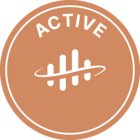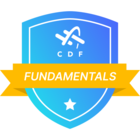I’m working on a prototype for a flexible data model to store time series data in a way that is easy to catalogue, query and filter. Using Pygen both to populate and use the model seems convenient.
At its current iteration, I’ve only applied direct relations and (undocumented?) @reverseDirectRelations in the GraphQL schema. I expected to be able do something similar to
client.windmill(windfarm="Hornsea 1").blades(limit=-1).sensor_positions(limit=-1).query()
as found in the Pygen documentation, but it does not work (my client.windmill analouge has no methods corresponding to its relations). Do I have to use edges instead of relations to query easily and declaratively with Pygen?


 Check the
documentation
Check the
documentation Ask the
Community
Ask the
Community Take a look
at
Academy
Take a look
at
Academy Cognite
Status
Page
Cognite
Status
Page Contact
Cognite Support
Contact
Cognite Support


